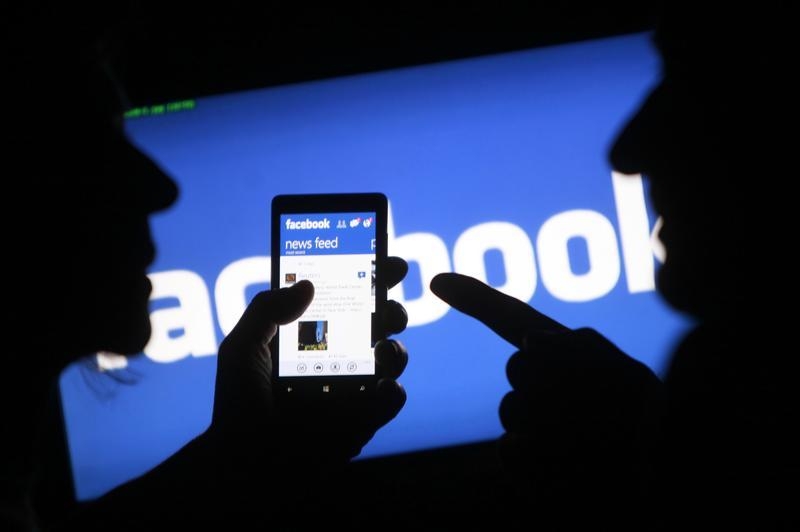
Facebook deletes popular support group for women Soul Sisters Pakistan
Facebook has deleted a women-only group in Pakistan with more than 300,000 members who used it to freely discuss taboo topics, its founder told AFP on Friday. Soul Sisters Pakistan, created in 2013, acted as a support group for women who shared information about sex, divorce, and domestic violence -- issues often deemed inappropriate to discuss publicly. "This group means so much to women in Pakistan who now have nowhere to go to," Kanwal Ahmed told AFP. According to Kanwal, Facebook deleted the group late Wednesday after warning her of an unspecified "intellectual property violation" linked to a post. "They didn't even show which post it was," said Ahmed, who was selected as a community leader by Facebook in 2018 thanks to the group's success. Read more: IHC throws out ministry report on X ban "It's literally personal stories and anonymous posts." AFP has contacted Facebook for comment. The group enabled members to offer each other informal help, ranging from legal advice to emotional support, on topics that might otherwise have drawn abuse if posted about publicly. "The suspension of Soul Sisters Pakistan speaks to the arbitrary and non-transparent ways in which social media platforms operate and subtle ways in which community guidelines of these platforms can work against users in the Global South," Shmyla Khan, a digital rights researcher in Lahore, told AFP. Soul Sisters Pakistan has previously come under fire from critics who accused it of promoting divorce and "wild" behaviour challenging tradition and patriarchal norms. Read: IHC issues notices to ministry, PTA over suspension of social media platform X More than 80 per cent of women in Pakistan have reported being harassed in public places, UN Women said in 2020, while around a quarter of women have experienced physical or emotional violence from their husband or partner, according to a 2017-2018 health ministry survey. "I feel lost without the group," said Shiza, who only gave her first name. "This is where I used to go when life seemed too difficult to bear." Online censorship is rife in Pakistan. Social media platform X has been disrupted consistently by the government since shortly after the national election in February, which was marred by rigging allegations. TikTok has twice been banned by the telecommunications authorities over "inappropriate content", lifted only after assurances that the platform would better moderate content. More than 18 million videos were removed between October and December, according to the latest data from TikTok, while YouTube was banned between 2012 and 2016 over content deemed blasphemous.

Facebook has deleted a women-only group in Pakistan with more than 300,000 members who used it to freely discuss taboo topics, its founder told AFP on Friday. Soul Sisters Pakistan, created in 2013, acted as a support group for women who shared information about sex, divorce, and domestic violence -- issues often deemed inappropriate to discuss publicly. "This group means so much to women in Pakistan who now have nowhere to go to," Kanwal Ahmed told AFP. According to Kanwal, Facebook deleted the group late Wednesday after warning her of an unspecified "intellectual property violation" linked to a post. "They didn't even show which post it was," said Ahmed, who was selected as a community leader by Facebook in 2018 thanks to the group's success. Read more: IHC throws out ministry report on X ban "It's literally personal stories and anonymous posts." AFP has contacted Facebook for comment. The group enabled members to offer each other informal help, ranging from legal advice to emotional support, on topics that might otherwise have drawn abuse if posted about publicly. "The suspension of Soul Sisters Pakistan speaks to the arbitrary and non-transparent ways in which social media platforms operate and subtle ways in which community guidelines of these platforms can work against users in the Global South," Shmyla Khan, a digital rights researcher in Lahore, told AFP. Soul Sisters Pakistan has previously come under fire from critics who accused it of promoting divorce and "wild" behaviour challenging tradition and patriarchal norms. Read: IHC issues notices to ministry, PTA over suspension of social media platform X More than 80 per cent of women in Pakistan have reported being harassed in public places, UN Women said in 2020, while around a quarter of women have experienced physical or emotional violence from their husband or partner, according to a 2017-2018 health ministry survey. "I feel lost without the group," said Shiza, who only gave her first name. "This is where I used to go when life seemed too difficult to bear." Online censorship is rife in Pakistan. Social media platform X has been disrupted consistently by the government since shortly after the national election in February, which was marred by rigging allegations. TikTok has twice been banned by the telecommunications authorities over "inappropriate content", lifted only after assurances that the platform would better moderate content. More than 18 million videos were removed between October and December, according to the latest data from TikTok, while YouTube was banned between 2012 and 2016 over content deemed blasphemous.
